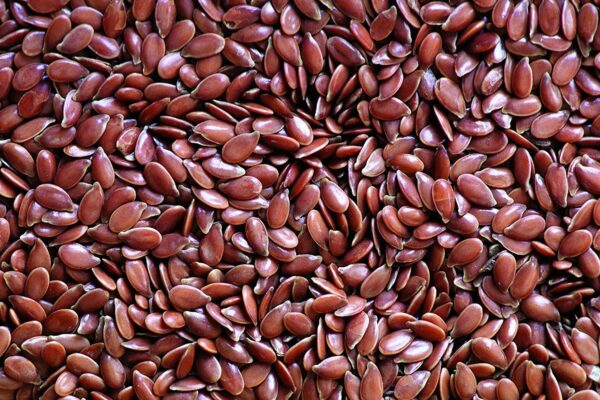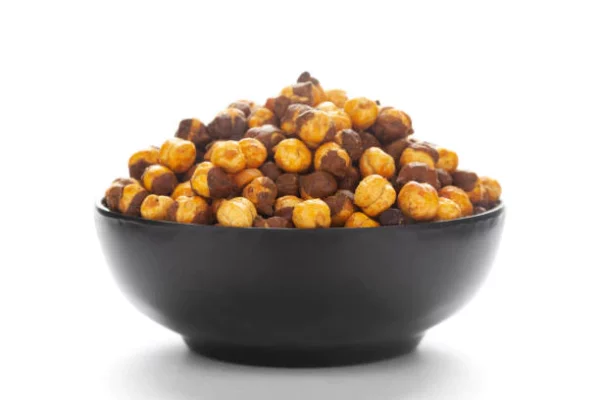Lemon Juice : Know Home Remedies to Easily Remove Dark Spots
Lemon juice is often recommended as a natural remedy for dark spots on the face, it’s important to note that it can be irritating for some people and may not be suitable for all skin types. If you decide to use lemon juice, remember to do a patch test first and dilute it with water or other ingredients to minimize the risk of irritation. Here are nine home remedies that incorporate lemon juice to help reduce dark spots:
Is Lemon Juice Effective in Removing Dark Spots?
Lime juice contains natural bleaching properties due to its high vitamin C content, which may help lighten dark spots over time. However, the effectiveness of lemon juice in removing dark spots can vary from person to person, and results may not be immediate or guaranteed.
It’s important to note that lime juice can be quite acidic and may cause skin irritation or sensitivity in some individuals, especially those with sensitive or dry skin. Therefore, it’s crucial to perform a patch test before applying lemon juice to your face and diluting it with water or other ingredients to minimize the risk of irritation.
Additionally, it’s worth mentioning that dark spots can have various causes, such as hyperpigmentation, sun damage, acne scars, or melasma. Treating these conditions requires a comprehensive approach, including sunscreen use, regular exfoliation, moisturizing, and potentially seeking professional advice from a dermatologist.
Also Read: wellhealthorganic.com:health-benefits-and-side-effects-of-oil-of-oregano
Home remedies to remove dark spots on the face with lemon juice
While lime juice may be one component of a skincare routine for addressing dark spots, it’s essential to have realistic expectations and consider other treatment options if you’re looking for more significant and reliable results.
Lemon Juice and Honey
Mix equal parts lemon juice and honey. Apply the mixture to the dark spots and leave it on for 15-20 minutes before rinsing it off with warm water. Honey has moisturizing properties that can help balance the drying effects of lime juice.
Lemon Juice and Aloe Vera
Combine fresh lime juice with aloe vera gel. Apply the mixture to the affected areas and leave it on for 15-20 minutes before rinsing it off. Aloe vera has soothing properties that can help calm the skin.
Lemon Juice and Turmeric
Mix lime juice with a pinch of turmeric powder to form a paste. Apply the paste to the dark spots and leave it on for 15-20 minutes before rinsing it off. Turmeric has skin-brightening properties that can enhance the effects of lemon juice.
Lemon Juice and Yogurt
Combine lemon juice with plain yogurt to create a paste. Apply the paste to the dark spots and leave it on for 15-20 minutes before rinsing it off. Yogurt contains lactic acid, which can help exfoliate the skin gently.
Lemon Juice and Cucumber
Blend lime juice and cucumber to create a mixture. Apply it to the affected areas and leave it on for 15-20 minutes before rinsing it off. Cucumber has a soothing and cooling effect on the skin.
Lemon Juice and Papaya
Mash ripe papaya and add lemon juice to it. Apply the mixture to the dark spots and leave it on for 15-20 minutes before rinsing it off. Papaya contains enzymes that can help lighten the skin.
Lemon Juice and Vitamin E Oil
Mix lemon juice with a few drops of vitamin E oil. Apply the mixture to the affected areas and leave it on for 15-20 minutes before rinsing it off. Vitamin E oil has moisturizing and antioxidant properties.
Lemon Juice and Oatmeal
Combine lime juice with ground oatmeal to make a paste. Apply the paste to the dark spots and gently massage it in circular motions for a few minutes. Leave it on for 15 minutes before rinsing it off. Oatmeal can help exfoliate the skin gently.
Lemon Juice and Coconut Oil
Mix lime juice with coconut oil. Apply the mixture to the dark spots and leave it on for 15-20 minutes before rinsing it off. Coconut oil is moisturizing and can help nourish the skin.
Remember to perform a patch test before using any of these remedies and discontinue use if you experience any irritation or adverse reactions. It’s always a good idea to consult with a dermatologist for personalized advice and guidance regarding your specific skin concerns.
Also Read: wellhealthorganic.com:difference-between-steam-room-and-sauna-health-benefits-of-steam-room
Dried Cranberry Leaves, Blueberry, Bearberry, Pear Trees, Pear Skin
Dried Cranberry Leaves
Dried cranberry leaves are sometimes used in traditional medicine for their potential antioxidant and anti-inflammatory properties. They are believed to have benefits for urinary tract health and may help prevent certain infections. However, there is limited scientific research on the specific effects of dried cranberry leaves on skin conditions or dark spots.
Blueberry
Blueberries are rich in antioxidants, including vitamin C and anthocyanins, which can help protect the skin from damage caused by free radicals. While blueberries are known for their potential health benefits when consumed, there is limited scientific evidence regarding their direct effectiveness in treating dark spots or other skin conditions when applied topically.
Bearberry
Bearberry, also known as uva ursi, is a plant that contains a compound called arbutin, which has been studied for its potential skin-lightening effects. Arbutin is believed to inhibit the enzyme involved in melanin production, which can contribute to reducing hyperpigmentation and dark spots. However, the effectiveness of bearberry extract or products containing arbutin may vary, and it’s essential to follow product instructions and consult with a dermatologist before use.
Pear Trees
Pear trees, specifically their leaves, and bark, have been used in traditional medicine for various purposes. However, there is limited scientific evidence to support their effectiveness in treating dark spots or other skin conditions.
Pear Skin
Pear skin contains vitamins and antioxidants that can contribute to overall skin health. However, there is no specific scientific research on the direct effects of pear skin on dark spots. It’s worth noting that using fruit peels directly on the skin may cause irritation or sensitivity in some individuals, so caution should be exercised.
While natural remedies can be beneficial, it’s important to remember that individual results may vary, and it’s always a good idea to consult with a dermatologist or skincare professional for personalized advice and recommendations tailored to your specific skin concerns.
Also Read: Wellhealthorganic.com:weight-loss-in-monsoon-these-5-monsoon-fruits-can-help-you-lose-weight
Conclusion
In conclusion, lemon juice is often suggested as a natural remedy for removing dark spots on the face. It contains vitamin C and natural bleaching properties that may help lighten the spots over time. However, its effectiveness varies from person to person, and results may not be immediate or guaranteed. It’s important to note that lemon juice can be acidic and may cause skin irritation or sensitivity, so it’s recommended to perform a patch test and dilute it before use.
Using lemon juice in combination with other natural ingredients like honey, aloe vera, turmeric, yogurt, cucumber, papaya, vitamin E oil, oatmeal, or coconut oil can create homemade remedies for dark spots. However, it’s crucial to be cautious of any adverse reactions and discontinue use if irritation occurs.
It’s essential to manage expectations and understand that natural remedies may not provide dramatic or instant results. If desired results are not achieved or if you have concerns about your dark spots, it’s advisable to consult with a dermatologist for personalized advice and alternative treatment options. They can provide professional guidance based on your specific skin concerns.
FAQ
Q: Is lemon juice effective in removing dark spots on the face?
A: Lemon juice contains natural bleaching properties due to its high vitamin C content, which may help lighten dark spots over time. However, the effectiveness of lemon juice in removing dark spots can vary from person to person, and results may not be immediate or guaranteed. It’s important to note that lemon juice can be quite acidic and may cause skin irritation or sensitivity in some individuals, so it’s recommended to perform a patch test and dilute it with water or other ingredients before applying it to the face.
Q: How can I use lemon juice to remove dark spots on my face?
A: Lemon juice can be used in various ways to potentially lighten dark spots on the face. One method is to apply fresh lemon juice directly to the affected areas using a cotton pad or your fingertips. Alternatively, you can mix lemon juice with other natural ingredients like honey, aloe vera, turmeric, yogurt, cucumber, papaya, vitamin E oil, oatmeal, or coconut oil to create a paste or mask. These mixtures can be applied to the dark spots and left on for 15-20 minutes before rinsing off. It’s important to be cautious of any skin irritation or sensitivity and discontinue use if adverse reactions occur.
Q: Are there any risks or precautions when using lemon juice for dark spots?
A: Yes, there are some risks and precautions to consider when using lemon juice for dark spots. Lemon juice can be acidic and may cause skin irritation, especially for individuals with sensitive or dry skin. It’s essential to perform a patch test before applying lemon juice to the face and diluting it with water or other ingredients to minimize the risk of irritation. Avoid sun exposure after using lemon juice on the skin, as it can increase sensitivity to UV rays. If you experience any adverse reactions or persistent irritation, it’s recommended to discontinue use and consult with a dermatologist.
Q: How long does it take to see results when using lemon juice for dark spots?
A: The time it takes to see results when using lemon juice for dark spots can vary from person to person. Some individuals may notice a gradual lightening of the dark spots over several weeks or months of consistent use, while others may not experience significant changes. It’s important to have realistic expectations and understand that natural remedies may not provide immediate or guaranteed results. Consistency and patience are key, and it’s advisable to consult with a dermatologist for personalized advice and alternative treatment options if desired results are not achieved.








